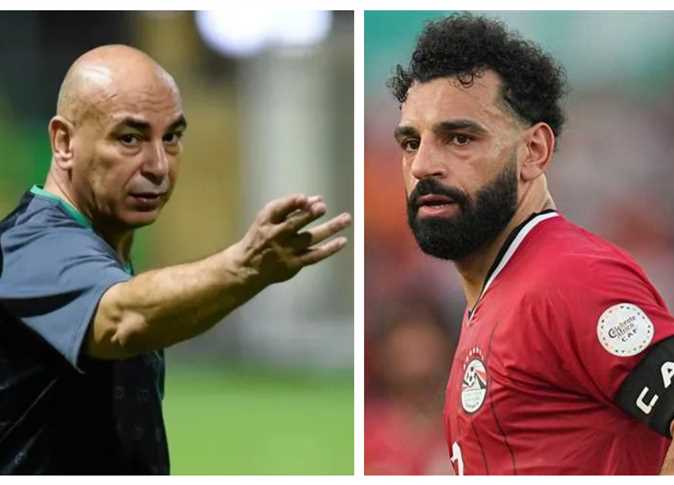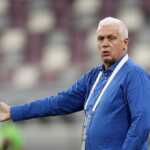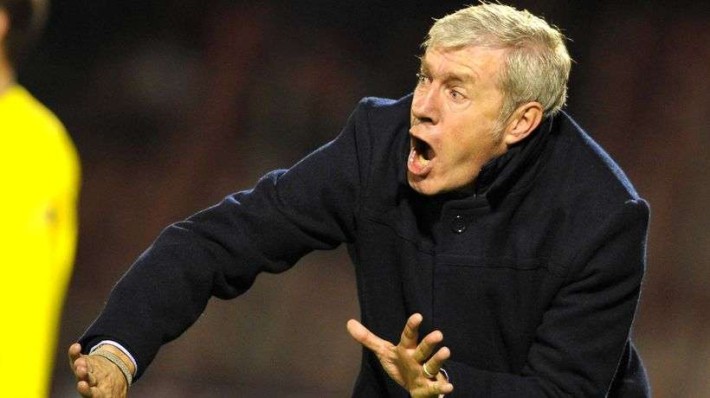Hossam Hassan has emerged as the latest addition to the helm of Egypt’s national team, replacing Portuguese manager Roy Vitoria following Egypt’s exit from the 2023 Africa Cup of Nations in the round of 16.
The decision to opt for a national choice came after negotiations with French coach Herve Renard stumbled, as Renard insisted on waiting until after the Olympics.
Facing significant challenges, Hossam Hassan steps into the role amidst the backdrop of failed experiments with Egyptian schools of coaching, including Shawky Gharib, Hossam El Badry, and Ehab Galal, alongside his own controversial media record, which included scathing criticism of the national team’s top stars, notably Liverpool’s star and Pharaohs’ captain, Mohamed Salah.
The 57-year-old has managed several clubs in the Egyptian Premier League, notably Al Masry, Ittihad Alexandria, and Pyramids FC, as well as coaching the Jordanian national team in 11 matches, winning 4, losing 2, and drawing 5.
Hossam Hassan has always emphasized his deep admiration for the coaching philosophy of the late Mahmoud El-Gohary, a figure of great significance in Egyptian and Jordanian football history.
Hossam Hassan and Mohamed Salah
Speculation has risen over an initial cooling of the relationship between Hossam Hassan and Mohamed Salah, which could potentially escalate into a future rift, after the Liverpool star failed to engage with the announcement of the new coach’s identity.
Additionally, statements from Ibrahim Hassan, the team’s director, following his appointment, carried dual interpretations.
He initially praised the abilities and value of Mohamed Salah, but quickly asserted that there are no exceptions for stars or professionals, adding, “There is no room for pampering in the Egyptian national team.”
Ibrahim, who himself has a history with Mohamed Salah, having previously criticized on television the decision to award Salah the captain’s armband without considering seniority.
El-Gohary’s Legacy and Abu Zeid’s Shock
Mahmoud El-Gohary’s coaching career was characterized by strong and unexpected stances towards first-tier stars who enjoyed great popularity within Al Ahly and Zamalek, advocating the motto, “No stars within the team… teamwork is the star.”
One of the most notable clashes in the records of the Egyptian national team was between El-Gohary and Taher Abu Zeid.
The former ignored the player during several events and excluded him from the squad for the 1990 World Cup before intermediaries intervened to bring him back, only to continue punishing him by keeping him on the bench.
The incident remained a subject of debate until the present day, with Magdi Abdelghani, one of the stars who witnessed the story, appearing on El Mehwar TV in September 2023, saying, “El-Gohary mistreated Taher Abu Zeid due to a personal dispute, unrelated to football.
Taher was rebellious and stubborn, not someone to be trifled with, and when his mind was made up, it was final.”
Mahmoud El-Gohary and Hamada Abdelatif
Hamada Abdelatif, the former Zamalek midfielder, was known for his exceptional skills and ability to execute dribbles in a way that captivated fans in the stands.
Mahmoud El-Gohary ignored Hamada Abdelatif during his tenure as national team coach, a move that prompted the White Knights’ supporters to chant during Farouk Jafar’s farewell match, “Why, El-Gohary, why? What did Hamada do?”
Hamada Abdelatif reiterated in multiple TV appearances that he faced clear injustice and mistreatment, despite acknowledging Mahmoud El-Gohary’s capabilities as one of the best in Egyptian football history.
Ibrahim Said’s Dismissal
It was not uncommon for a coach who ignored the limelight of Taher Abu Zeid and faced the protests of Hamada Abdelatif’s fans to look upon Ibrahim Said’s talents with a decisive and firm gaze.
During the 2002 Africa Cup of Nations in Mali, as the national team grappled with technical crises, notably in defense due to Hany Said’s suspension, El-Gohary surprised everyone by sending Ibrahim Said home, excluding him from the squad.
The reason for Said’s exclusion remained concealed for 14 years until Ibrahim Said himself revealed it on MBC Masr, saying, “He saw I was with a girl.”
The initial days of interaction between the duo during the upcoming training camp will reveal how things unfold between them amid two conflicting paths: one ignoring previous statements by the twins regarding “the armband and injury,” and Salah introducing himself in a manner befitting their coaching philosophy derived from El-Gohary’s mentality, as Magdi Abdelghani justified the dispute with Taher Abu Zeid.












